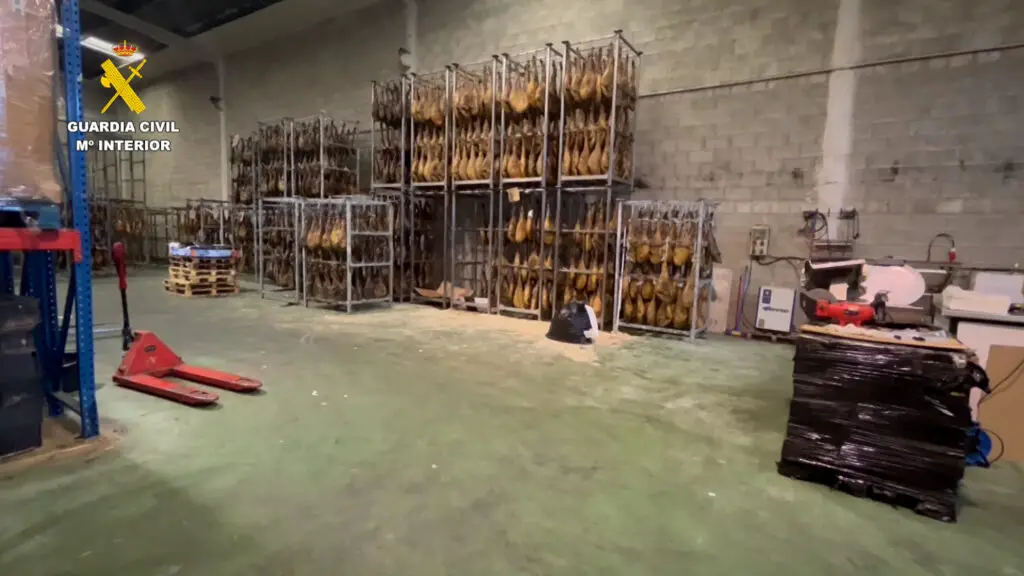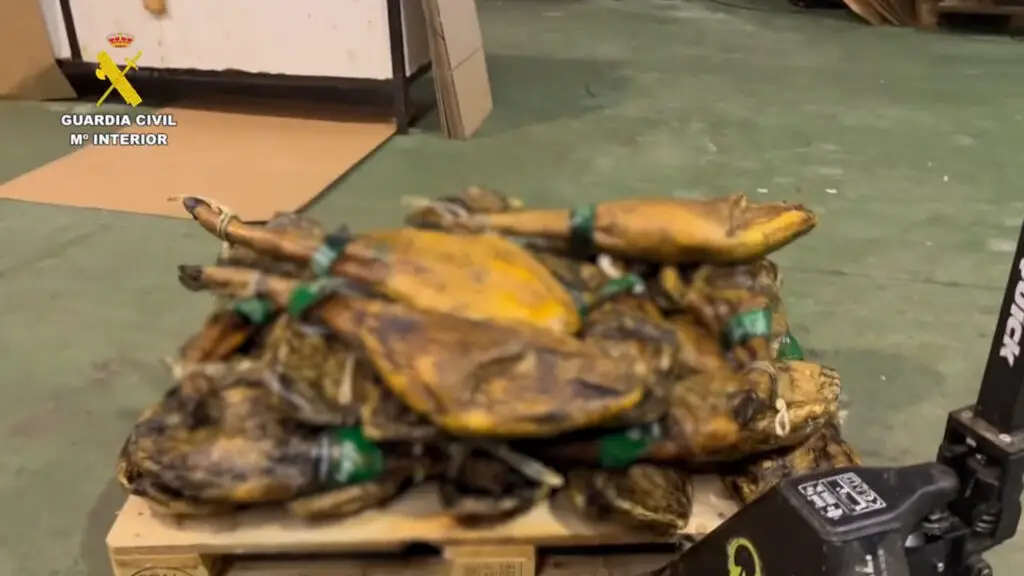The Spanish authorities have seized over 50 tonnes of fake luxury hams infested with worms and covered with mould.
Spanish Cops Seize More Than 50 Tonnes Of Mouldy Fake Luxury Hams Infested With Worms pic.twitter.com/rKYVG1VsY3
— NewsX (@newsx_media) June 30, 2023
The two raids took place in Seville in southern Spain, where fraudsters were reportedly selling the inferior-quality meat with fake certificates and forged expiration dates as luxury hams in a multi-million-pound fraud.
The footage shows officers cataloguing vast quantities of cured meats that had been stored in conditions that appeared to fall short of even the most basic health and safety standards.
Newsflash obtained a statement from the Spanish Guardia Civil dated 24th June saying: “The Civil Guard is investigating six individuals for crimes against public health, fraud, industrial property infringement, and offences against the market and consumers.”
The statement also said: “The agents found pieces covered in mould and infested with worms, as well as hams coated with vegetable charcoal to simulate ‘pata negra’ ham.”
‘Pata negra’ means ‘black foot’ and refers to the colour of the Iberian pig’s trotter, which are nearly always black. It is often an indication of quality.
The Spanish Civil Guard said they had “seized over 50,000 kilogrammes of hams and pork shoulders located in two clandestine warehouses in Alcala de Guadaira and Dos Hermanas in Seville.”

The officers found warehouses with freezing chambers in such poor condition that there were columns of ice connecting the ceiling to the floor, adding: “Some hams were completely covered in mould or infested with worms.”
The authorities said that the suspects were washing the hams with high-pressure water or burning them to bring out the fat before applying a mixture of vegetable oil and charcoal to make them look like the real thing.
Officers said that when the crooks were unable to pass off inferior whole hams as the luxury version, they would slice them thinly and sell them off anyway.
The statement also said: “In addition to deplorable hygienic-sanitary conditions, the labelling of these products was forged, manipulating expiration dates and lot numbers. At times, nonexistent sanitary registration numbers were used, and the quality certificates of the Iberian products were copied from another operator.”
The officers said that they began investigating earlier this year and that the products were being “supplied to both end consumers and large commercial chains, constituting a multimillion-dollar fraud”.

The statement also said: “The investigative efforts have led the agents to companies domiciled in Seville, Caceres, Valencia, Salamanca, and Madrid. Some of these companies are being investigated as accomplices in the scheme, while others are victims of major fraud.”
The investigation is ongoing.



